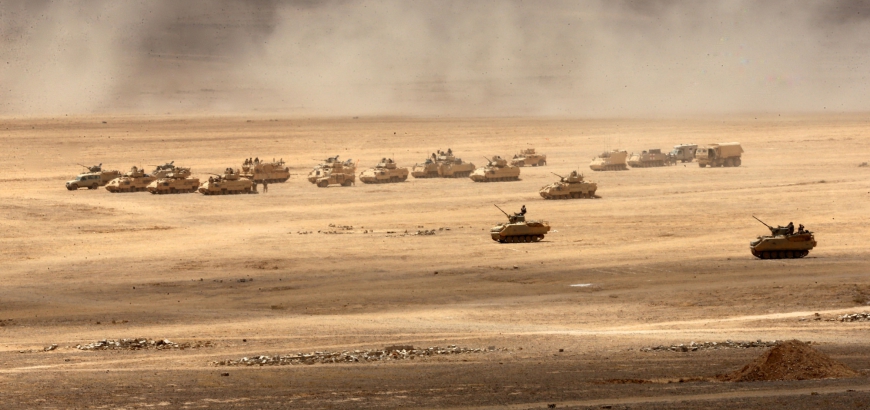Reports have begun to increase about the Israeli-American-British plan which Amman intends to become involved in, targeting the southern Syrian areas adjacent to the border with Jordan and the Golan, to isolate them from the legitimate Syrian government and its army and turn them into a region for armed men with direct military support from these four parties.
But the important question here is: Will those behind this plan of aggression work on implementing and activating a military role for Jordan?
Some analysts in Israel believe that the Jordanian kingdom would bear more risks if it was to cooperate openly and directly in implementing such a plot, because its well-known domestic and demographic situation will be greatly shaken, and its contribution would only serve the members of the big Israeli parties, including most of the Likud ministers, in addition to the Jewish Home party and its leaders Naftali Bennett and Uri Ariel, as well as the Yisrael Beiteinu Party and its leader the war minister, Avigdor Lieberman. Ariel still keeps in his office, as agriculture minister in the government of Prime Minister Benjamin Netanyahu, a picture of the map of Greater Israel in which most of the lands of the Kingdom of Jordan appear. These Zionists still reject the British Mandate division of Palestine in 1920 between lands east of the Jordan River whose administration was granted to Abdullah I bin al-Hussein and lands west of it which were granted to the Zionist movement, because Palestine had included both the east and west banks up to the Mediterranean Sea until the Balfour Declaration of 1917.
Aryeh Eldad from the Israel National Union party, is constantly demanding the return of the east of the Jordan and its incorporation into Israel, while the members of other parties want to turn the lands east of the Jordan into a Palestinian state established by Israel for the Palestinians who will be moved there from all over.
The kingdom will enter, if it is implicated in these plans, into a state of war with a brotherly country, and it will find itself caught between the flame of the desire of some Israeli parties to establish a Palestinian state east of the Jordan and between the desire of some other parties who hope to incorporate this territory into Israel — both desires which cause danger for the future of the kingdom.
Syria’s commanders, army, people and allies will not stand idly by in the face of an Israeli-American-British aggression with the kingdom as its proxy.
For that reason American and Israeli analysts expect that these threats will not exceed the boundaries of military skirmishes which the three states — Britain, America and the kingdom — are carrying out, for the following reasons:
First: It is not possible for the Syrian people in the country’s south to surrender and not fight against this belligerence, especially given that the region is very hostile to Israel, which has the upper hand in this aggression.
Second: The people in Jordan, both Jordanian and Palestinian, cannot respond to this role which intends to implicate their state and army.
Third: An aggression such as this will lead to an expansion of the war to Jordan’s remaining border with Iraq because the Iraqi people and the army, which are fighting terrorism there and reject the secession of the Iraqi Kurdistan region, will find themselves forced to thwart such a precedent against Syria in the country's south.
Fourth: The war on Syria will move to a stage in which allied regional forces will find it urgently necessary to defend Syrian territory more intensively and broadly than before and more openly, because thwarting this plan will be one of the most important central episodes in defending the current regional situation and turning it into the future in the interests of the parties allied with Syria.
This article was translated and edited by The Syrian Observer. Responsibility for the information and views set out in this article lies entirely with the author.


